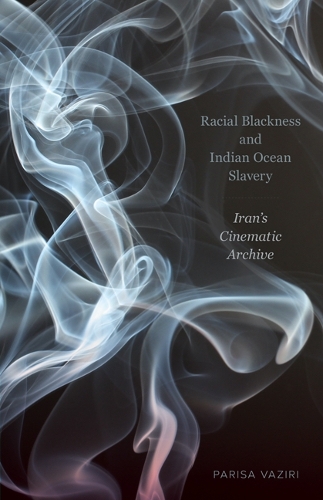
Racial Blackness and Indian Ocean Slavery: Iran's Cinematic Archive
(Paperback)
Available Formats
Publishing Details
Racial Blackness and Indian Ocean Slavery: Iran's Cinematic Archive
By (Author) Parisa Vaziri
University of Minnesota Press
University of Minnesota Press
3rd April 2024
United States
Classifications
Professional and Scholarly
Non Fiction
Ethnic studies / Ethnicity
Middle Eastern history
Slavery, enslaved persons and abolition of slavery
791.430955
Physical Properties
Paperback
368
Width 140mm, Height 216mm, Spine 15mm
454g
Description
Rethinking the history of African enslavement in the western Indian Ocean through the lens of Iranian cinema
From the East African and Red Sea coasts to the Persian Gulf ports of Bushihr, Kish, and Hurmuz, sailing and caravan networks supplied Iran and the surrounding regions with African slave labor from antiquity to the nineteenth century. This book reveals how Iranian cinema preserves the legacy of this vast and yet long-overlooked history that has come to be known as Indian Ocean slavery.
How does a focus on blackness complicate traditional understandings of history and culture Parisa Vaziri addresses this question by looking at residues of the Indian Ocean slave trade in Iranian films from the second half of the twentieth century. Revealing the politicized clash between commercial cinema (flmfrs) and alternative filmmaking (the Iranian New Wave), she pays particular attention to the healing ritual zr, which is both an African slave descendent practice and a constitutive element of Iranian culture, as well as to cinematic syh bz (Persian black play). Moving beyond other studies on Indian Ocean and trans-Saharan slavery, Vaziri highlights the crystallization of a singular mode of historicity within these cinematic examplesone of absence that reflects the relative dearth of archival information on the facts surrounding Indian Ocean slavery.
Bringing together cinema studies, Middle East studies, Black studies, and postcolonial theory, Racial Blackness and Indian Ocean Slavery explores African enslavement in the Indian Ocean through the revelatory and little-known history of Iranian cinema. In doing so, it shows that Iranian film reveals a resistance to facticity representative of the history of African enslavement in the Indian Ocean and preserves the legacy of African slaverys longue dure in ways that resist its overpowering erasure in the popular and historical imagination.
Author Bio
Parisa Vaziri is assistant professor of comparative literature and Near Eastern studies at Cornell University.
